How To Know When to Winterize Your Boat
The question of how to know when to winterize your boat comes down to one thing: location, location, location! The best time to winterize your boat will vary according to where you are in the world, and it is also likely to vary from one year to the next.
How to know when to winterize your boat? You need to winterize your boat before temperatures drop below freezing. You can approximate when this will be by checking the local weather, as the exact timing will vary from year to year. Generally, if you live in a climate that has cold winters, you should consider winterizing your boat in the Autumn, around October or November at the latest, to avoid freeze-damage.
Read on for more signs that show it’s time to winterize your boat, as well as a rough guide to the right time to winterize for different regions. Hint: It might be earlier than you think.
Summary
- The best time to winterize your boat depends on your location and climate, but generally it should be done before the first freeze of the season.
- It is recommended to begin winterizing before temperatures go below freezing, which is 35 degrees Fahrenheit or 0 degrees Celsius, and ideally before they dip below 40 degrees Fahrenheit or 4 degrees Celsius.
- Winterization involves draining the water systems, adding antifreeze to the engine and other systems, and covering the boat to protect it from the elements.
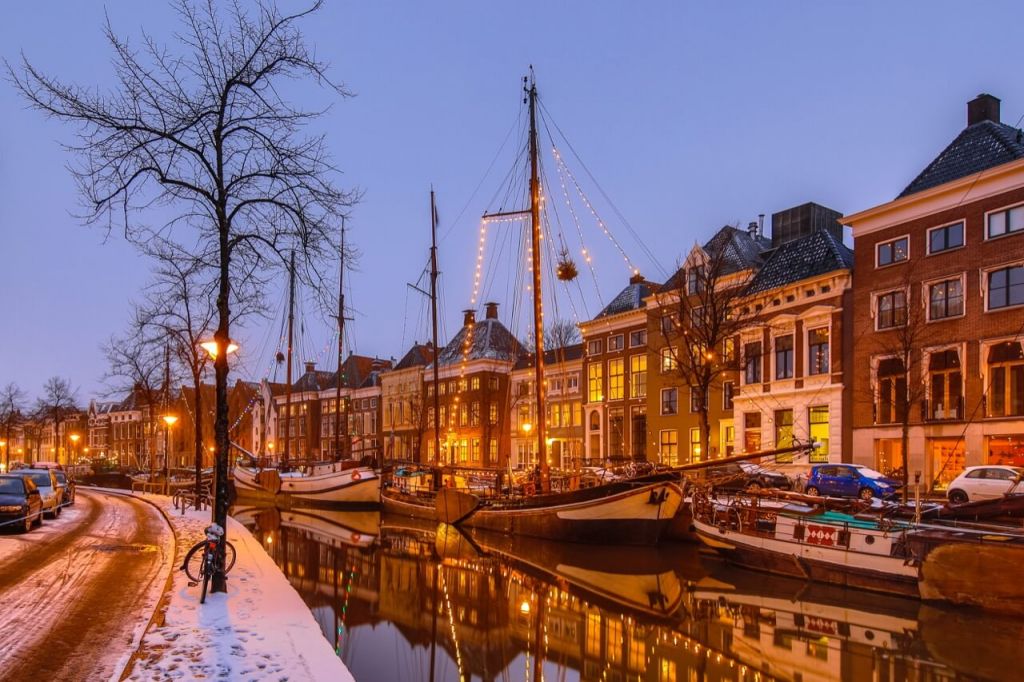
On this page:
When Should You Winterize Your Boat?
There is no hard and fast date for winterizing your boat; it will largely depend on when the end of the boating season is in your area. You should also wait until you’re certain you’ve finished using your boat.
As a general rule, you should look to winterize your boat before the temperatures drop below 25 degrees Fahrenheit, approximately -3 degrees Celsius. To be safe, it is best to start winterizing before temperatures drop below freezing point, 35 degrees Fahrenheit or 0 degrees Celsius, and ideally, before they get below 40 degrees Fahrenheit or 4 degrees Celsius.
While one night below freezing will not do your boat too much damage, if you have several cold nights in a row and the temperature does not get above freezing during the day, your boat is much more susceptible to freeze damage. This means it is best to exercise caution and winterize before it reaches this point.
When to Winterize Your Boat, According to Region
Of course, every region is different and knowing when to winterize your boat will depend on location-specific information. Let’s take a look at some approximate timings for different regions around the world.
| Region | Winterize? | Period |
|---|---|---|
| US - Northeast Coast | Yes | October - November |
| US - Northwest Coast | Yes | December |
| California / Florida | Sometimes | Depends |
| The UK | Yes | September |
| UK West Coast | Sometimes | December |
| Scotland | Yes | October - November |
| The Mediterranean | No | - |
| North Italy | Yes | November - December |
The US
In the US, the best time to winterize varies dramatically depending on which coast you’re on and how far north or south you are. The northeastern coast will generally get colder a lot faster than warmer areas, so you need to factor that into your winterizing plans. By December, you can expect to find temperatures low enough that winterizing is necessary on the East Coast. That being said, it is not uncommon for temperatures to drop below freezing in October and November too, so you should look to start winterizing in the autumn. You may find yourself starting before Thanksgiving and for some years, even as early as September.
If you’re based on the West Coast, you will have a lot more time to spare and can stretch out the season for a long time. Many boaters in California don’t bother winterizing at all. Despite this, it’s worth remembering that temperatures can still get below freezing in California, and freeze-related boat damage can be rife in the spring. The same goes for Florida boat owners. Just because you live in a warmer climate doesn’t mean you’re immune to freeze damage!
Further north on the West Coast, you will probably want to have your boat winterized by December in preparation for the colder weather to come, especially in January. Ultimately, you’ll need to keep an eye on the temperatures through the winter, but expect to get started around the end of the year.
The UK
Winterizing in the UK is also location-specific. As the UK benefits from varying climate regions, when you need to winterize your boat, it will depend heavily on where it is being stored. Some boat owners start preparing for winter as early as September to avoid any negative effects from a rapid temperature drop that could hit at any time.
On the other hand, many boat owners on the West Coast of England, for instance, sail all year round, not bothering to winterize at all. Most years, temperatures rarely drop below -5 degrees Celsius (23 degrees Fahrenheit), so people tend to take the risk. This comes down to your personal choice. However, the further north you go, the more at risk you are from freeze damage. In Scotland, winterizing tends to happen around October or November.
The Mediterranean
Generally, winterizing is not such a pressing matter if your boat is in the Med. Temperatures rarely dip below freezing in popular winter storage spots like Greece, Turkey, and Spain. One of the exceptions is northern Italy, where temperatures can drop below freezing in the winter months. In these instances, it’s a good idea to winterize your boat in November or December and wait until spring, when you’re out of the danger zone. Alternatively, you could sail down the coast and spend the winter in Sicily, where there’s no need to winterize!
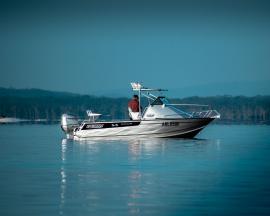
When To Winterize Your Boat Motor Exactly?
What Conditions Indicate When to Winterize Your Boat?
Colder nights
The conditions to look out for when deciding when to winterize your boat are evidence that the temperatures are getting lower. In temperate climates, you can tell that winter is approaching as the leaves change color and the nights get longer and colder, and you should feel a chill in the air. Generally, if you’re noticing the nights are getting significantly colder than in the summer and early autumn, it would be a good idea to start preparations to winterize your boat.
Frost on the ground
If you wake up to find a frost on the ground, that is a very strong indication that you need to winterize your boat as soon as possible. Don’t delay! Once you have nights where the temperature repeatedly drops below zero, you will need to winterize as soon as possible.
Storms
Similarly, if a storm is predicted, you need to take immediate action to avoid damage to your boat, including taking it out of the water if it isn’t already in dry storage. Regardless of your plans to winterize or not, it’d be wise to keep an eye on the forecast and get ready to act quickly if need be.
What If the Weather Gets Warmer Again?
It is important to keep in mind that once you winterize your boat, you won’t be able to use it again, even if the weather becomes warmer a few weeks later. This means that you need to be certain that it’s the right time before starting the process of winterizing!
The exception is if you choose to store your boat in the water, in which case you can still use it during warmer spells. However, if you are living in a place where the temperature is known to drop below freezing occasionally, you should still take some precautions. This includes winterizing systems like the water holding tank, faucets, and showers if your boat has them. Don’t use them during the winter; it is a small sacrifice to avoid winterizing repeatedly.
Factoring In the Effects of Climate Change on Winterizing
Like with many things, the effects of climate change have made winterizing a bit less predictable. Exactly when to winterize your boat is now much more about guesswork and judging the conditions on the ground. The seasons are no longer as predictable as they were in the past, and weather conditions can vary widely from year to year.
In the UK, for instance, it is much harder to make a concrete prediction on how low the temperature will get and when, so it is best to exercise caution with your winterizing plans. If you hear word of a Beast from the East (as in 2018), winterize your boat without delay!
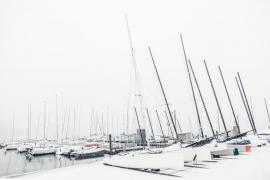
At What Temperature Will a Boat Engine Freeze?
Getting the Timing Right for Winterizing Your Boat
Unless you live in a hot climate year-round, it is best to winterize your boat even if it will only be out of use for a few weeks. You can winterize your boat in less than an hour, and it will significantly reduce the chance that you have to cope with freeze-related damages next season.
The exact time for winterizing your boat will vary year on year and is dependent on factors including where you live, how your boat will be stored, and what the weather predictions are for the arrival of winter. Knowing when to winterize your boat involves using your senses - check for signs of the temperature dropping and look out for evidence of frost or freezing. These are the strongest indications that winter is coming!
William has written a detailed step-by-step winterizing guide. Go check that out if you want to learn exactly what you need to do to keep your boat in great condition.
Did you find the answer to your specific question?
👍 0 👎 0

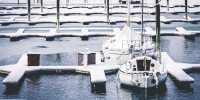
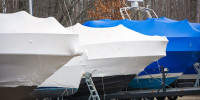
Comments
Lex Jones
Over here in Western Canada we enjoy a beautiful and considerably long summer, but still have to winterize our boats all the same, so that we can continue to spend the summers on the water! To join us; https://www.jonesboysboats.com/
Leave a comment